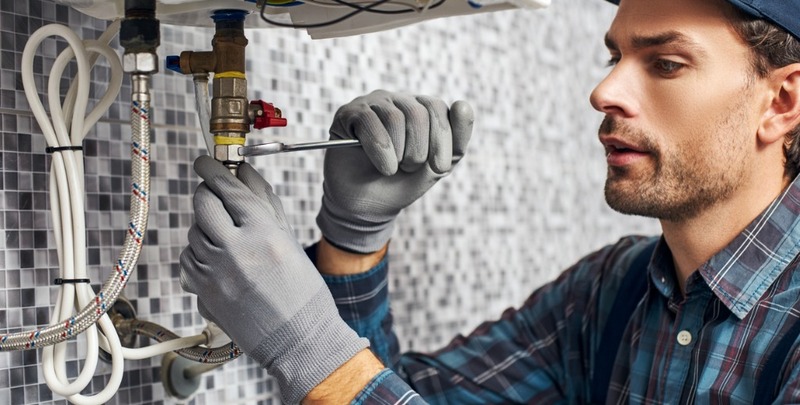
Situations Where You May Need a Gas Fitter
When you’re building a new home, or renovating an existing property, a gas fitter is one service that you’re likely to need.
With many homeowners turning to natural gas over electricity as their preferred source of energy, the need for gas fitting services has never been more prevalent. Let’s take a look at the situations where you may require the expert services of a gas fitting specialist in your home.
What Does a Gas Fitter Actually Do?
A gas fitter has many duties that fall under their role. Among them are:
- Installation, servicing and repairs of gas appliances (e.g. hot water systems, cooktops, gas heaters)
- LPG gas bottle installations
- Gas flue pipe installations and repairs
- Gas pressure adjustments
- Bayonet connector installations
- Testing and repairs of gas leaks
- Gas detection system installations
- Gas meter, pipework and valve installation, maintenance and repair
With all gas fitting work, they will also issue you with a gas compliance certificate. This shows that the work completed is in accordance with strict Australian standards, and that the work was completed by a fully qualified, licensed and certified gas fitter.

Hot Water System Gas Fitter Needs
Accessibility to running hot water is an essential requirement in many rooms of the home including the kitchen, bathroom and laundry. Having an effective hot water system to provide heated water when you need it is crucial.
An electric powered water heater is becoming increasingly expensive to run. Heat-pump and solar powered hot water systems offer the best in energy efficiency. However, can be significantly more expensive to purchase. Somewhere in the middle is the gas-powered hot water system. However, it too requires the expertise of a licensed gas fitter for installation.
Just be sure to use a licensed plumber who can legally provide licensed gas fitting services. Someone solely qualified as a gas fitter by law cannot provide you with the full range of plumbing services that you need.
Natural Gas Fitting Needs In The Kitchen
Often referred to as the heart of the home, the kitchen is where families and friends gather to share a meal or simply share the news and gossip of the day. As the room where we cook food and prepare meals, having a working oven and stove cooktop is vital.
Like hot water systems, kitchen cooktops are powered by electricity or natural gas. Electric cooktops are often cheaper at the point of purchase. However, the skyrocketing price of electricity means that they can be more expensive to run in the long term than a gas system.
Common Installation Duties for Gas Plumbers
If you’re installing a brand-new gas cooktop/oven, or making the switch from an electric-powered model, a gas fitter will be able to:
- Connect your home to the main gas supply line in your area
- Carry out the gas appliance installation
- Perform any future maintenance and repairs
- Issue gas compliance certificates
These tasks are something that, by law, only a licensed and proficient gas plumber can do. It ensures that gas appliances have been installed correctly and meet both Australian regulations and manufacturer instructions. Having a gas fitter install the stove/oven also minimises the risk of voiding your product warranty as well.

Home Heating Solutions
Heating in the home is not only an issue of comfort, it’s also an important health issue. Though 21-22°C is considered the ideal indoor room temperature for a house, the minimum safe temperature determined by the World Health Organisation is 18°C.
Similar to the kitchen cooktop and hot water system, home heaters can be gas or electricity-powered, with electric models ultimately more costly to run. If you choose to install a gas-powered heater, you will need a gas fitter to connect the appliance to the main gas line and install the unit. This is so it abides by safety standards and manufacturer instructions.
Gas Leak Detection
A gas leak in the house is something that you should always take seriously. They can occur anywhere that has a gas-powered appliance, such as the three situations described above.
Gas leaks are highly dangerous, simply due to the extreme flammability issues. They not only can lead to damage to your home, but also potential injury and loss of life. If you suspect or identify a gas leak in your home, a gas fitter is the best person to detect and repair the issue.
The Overall Importance of Using a Gas Fitting Professional
Whether you’re installing a new gas appliance such as a gas stove or gas heater, you will need a licensed gas fitter in your corner. They’re the person responsible for a range of duties that include:
- Connecting your home to the main gas lines in your area
- Installing the appliance and any gas appliance flues
- Providing essential maintenance and repair services when required
- Issuing a Certificate of Compliance and (if needed) a gas compliance plate
- Detect and repair any gas leaks in the home
Given the high level of risk involved in working with gas, only a gas fitting professional is legally able to install and service gas-powered appliances. They have the training and experience to work safely with gas.
They will ensure any work they complete meets all necessary Australian standards. Unlicensed gas work can put you, your family and your home at severe risk. You can also potentially void the warranties on any gas related appliances.
Contact the Licensed Experts in Gas Appliances
When it comes to essential work on natural gas pipes, gas systems and emergency repairs, you can count on the professional team at Metropolitan Plumbing. We boast a team of highly experienced, licensed plumbers and gas fitters who can assist with any gas service. Give us a call today for all your essential plumbing work and gas fitting needs.
Please note: This information is provided for advice purposes only. Regulations differ from state to state, so please consult your local authorities or an industry professional before proceeding with any work. See our Terms & Conditions here.
Published: 2022-10-19

















